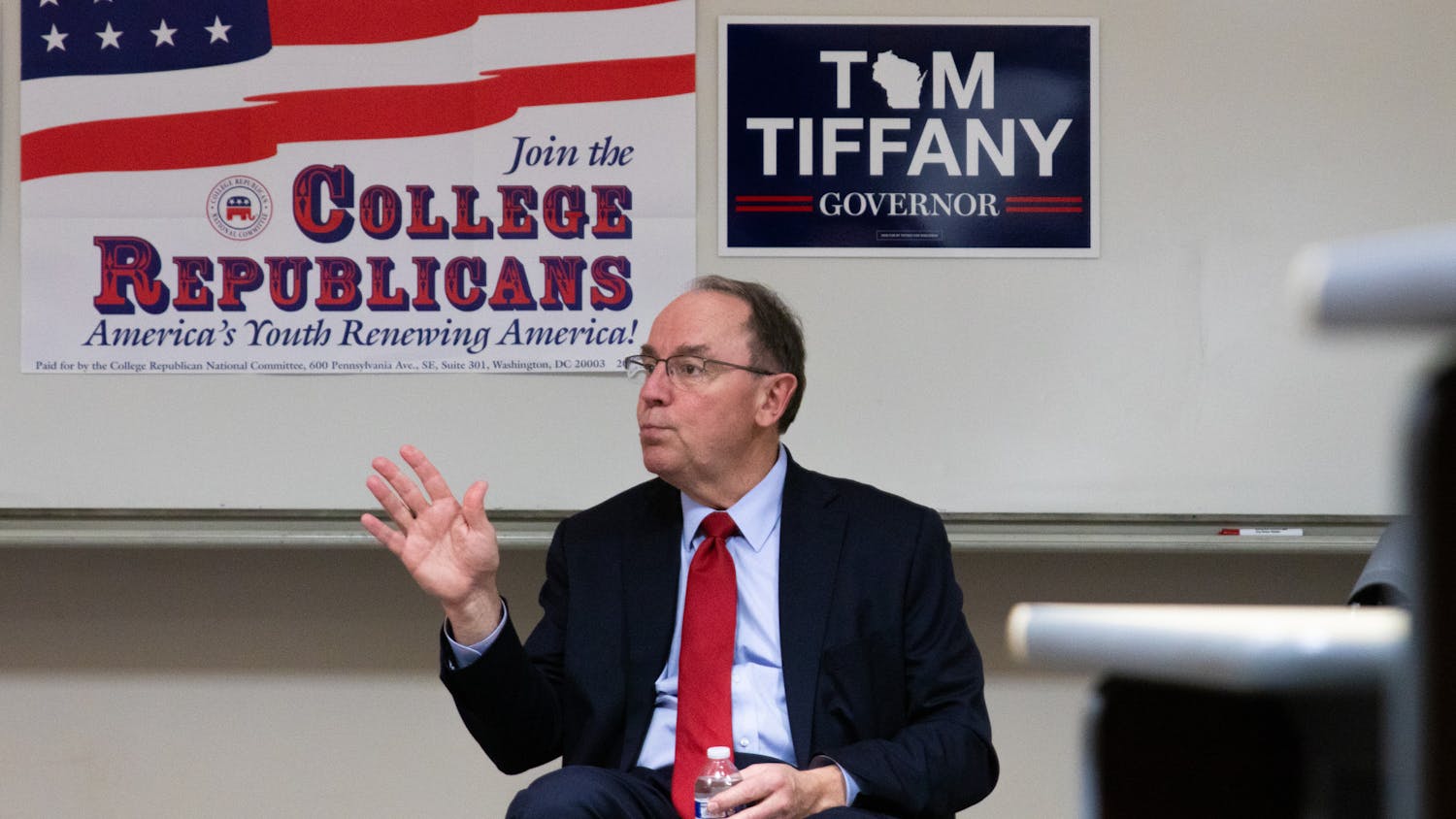For many at UW-Madison, construction is a way of life. Disgruntled students ceded
Yet while the cranes, orange
These projects are encompassed in the UW System’s biennial capital budget request, which lays out what state funding and bonding projects are needed at each of the state’s 16 public universities and UW-Extension.
One of those projects, UW-Madison’s Chemistry building, has been slated to be remodeled for many years.
The university says the current facility is too crowded as demand for science courses has soared.
“Inside the labs,
UW-Madison first proposed renovating the 50-year-old building in 2012. The state approved $86 million for the project—80 percent of the university’s request—in the 2015-’17 budget and the state Building Commission gave its blessing late last year.
Construction for the project’s first phase is now slated to begin in November, estimated to be completed in 2019. It will include a new eight-story tower for lecture halls, teaching laboratories and lab write-up spaces for undergraduates.
And once the university finds resources to make up the rest of the funds needed for the project, the building will also receive renovations to its basement and the Daniels wing, which houses more laboratories and classrooms.
Noten said the additions can’t come fast enough, as they would eliminate crowding concerns and clean up student work spaces.
“They’re just gross,” Noten said of the building’s laboratories. “There’s a video online in one of the chemistry websites … it shows the interior of the labs so you can kind of draw your own conclusions. But they’re just gnarly. I don’t think that they’re worthy of the level of the department.”
As part of the capital budget request, each campus will prioritize construction it needs and the system will then rank the projects and submit the request to the state. If Gov. Scott Walker or the state Legislature opts not to provide funding, the project could be delayed.
And though the chemistry
It’s why the Capital Planning and Development division has a six-year plan required by state statute, she explained, which allows them to outline goals and check up on school-centric fundraising efforts for projects throughout three bienniums.
The university’s Campus Planning Committee examines that criteria and ranks projects by priority before submitting recommendations to Chancellor Rebecca Blank, who in turn forwards the request to the UW System and the Board of Regents.
Priorities for this biennium that received a green light from the system include the second phase of renovation for the Walnut Street greenhouses, as well as major work to upgrade utility lines around the Bascom Hill area.
Other projects will have to wait their turn in line, as the system’s other institutions also have their own priorities.
“We understand that we’re all competing for very scarce means, so some years Madison’s priorities are a little higher, and some years they’re not,” Adams said. “And over the course of time, it all evens out.”
UW-Madison’s anticipated projects now lie in the hands of the legislature, which will decide during the coming months what and how much to fund.
Other campuses are also lining up for funds. One of the most expensive projects is at UW-Milwaukee, where university officials are attempting to secure over $69 million in funding to begin redeveloping a former hospital complex into a new academic neighborhood comprising classrooms and labs called the Northwest Quad.
The project is viewed as a way to ease space constraints at the university, but Walker chose not to approve any funds to begin renovating the facility in the last state budget and the Building Commission also opted not to provide any bonding.
"We could expand enrollment to address nursing and other health care shortages in the state," Robin Van Harpen, UWM's vice chancellor for finance and administrative affairs, told the Milwaukee Journal-Sentinel last year. "The Northwest Quad is an ideal site for the center."
But given the scope of the project, officials acknowledged it could take
"The reality of state bonding is we will never be able to do it more than one piece at a time," Van
In unique situations where a new building or addition is completely gift-funded, capital planning teams throughout the system can run those projects themselves without undergoing the drawn-out enumeration process.
The system was granted that authority, which Adams said has given her department more flexibility as they’ve been faced with less state funding for projects over the years. The regents also seek to gain authority in the next budget over projects funded by program revenues, like student unions and residence halls.
But while the system waits to determine how its projects come out after the legislature takes up the budget, UW-Madison’s Chemistry building will also wait for its full remodel until the campus raises enough money to complete the project—a move that could take years, Adams said.
“The decision was made, that I think everybody agreed to, we would only go forward right now and build the project for the funding that we have in hand,” she explained. “If the private money is raised, we will go back and ask for the balance of funds.”






